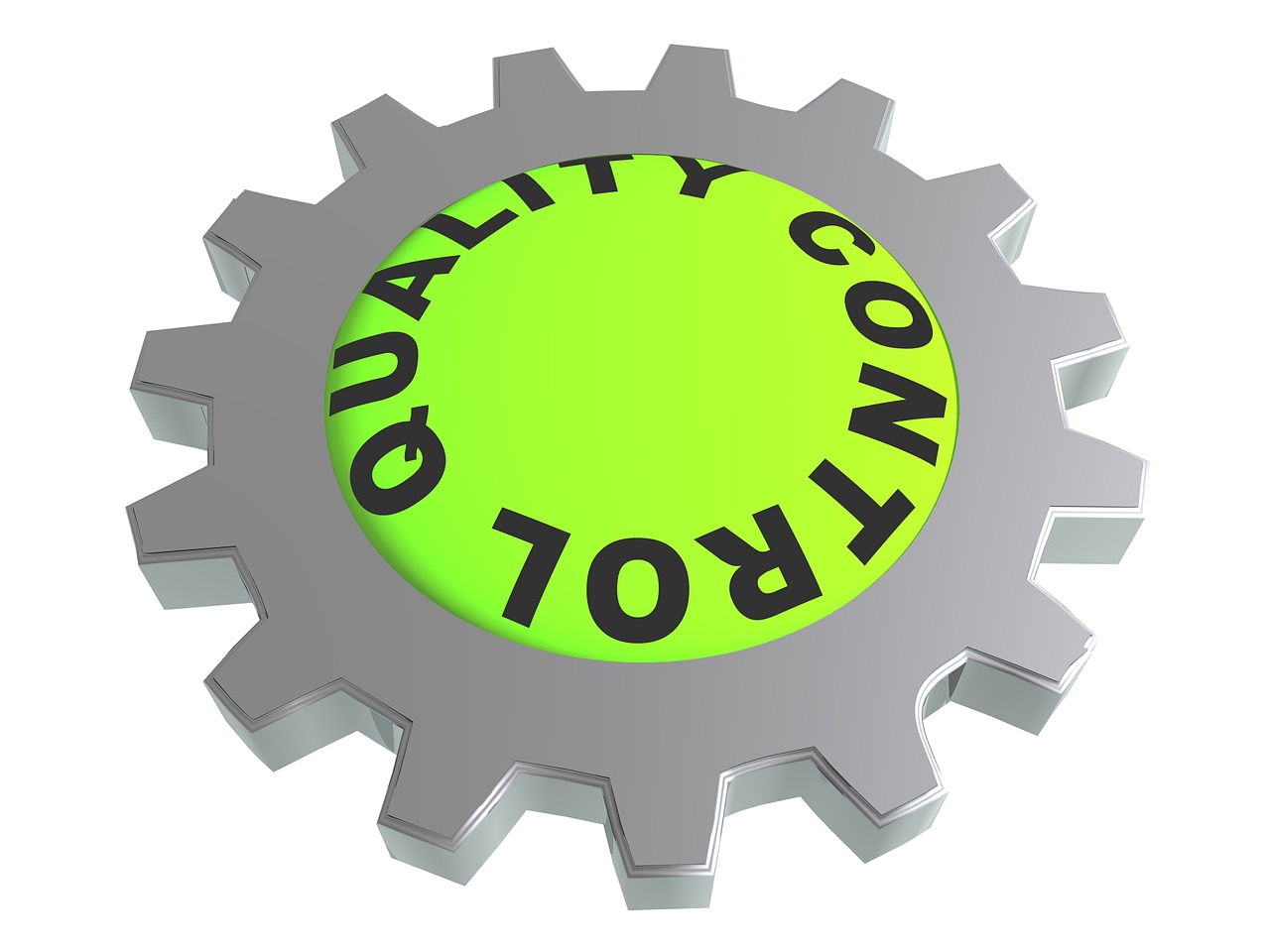Product warranty compliance is a critical aspect of running a successful business. As a business owner, it is crucial to understand the legal obligations and requirements regarding product warranties to protect yourself and your company from potential legal issues. In this article, we will delve into the topic of product warranty compliance and provide you with key insights and information that will help you navigate this complex area of law. By understanding the importance of product warranty compliance and seeking the guidance of an experienced lawyer, you can ensure that your business remains compliant and in line with regulations, while safeguarding your reputation and bottom line.
Product Warranty Compliance
Product warranty compliance is a critical aspect of any business’s operations. Understanding product warranties, ensuring compliance with legal requirements, and implementing effective warranty compliance programs are essential for both legal protection and customer satisfaction. This article will provide a comprehensive overview of product warranty compliance, covering its definition, importance, essential elements, legal requirements, common challenges, steps to ensure compliance, implementing an effective compliance program, training and education, and the consequences of non-compliance. Additionally, it will address some frequently asked questions about product warranty compliance.
1. Understanding Product Warranty
1.1 Definition of Product Warranty
A product warranty is a promise made by a manufacturer or seller that a product is free from defects and will perform as intended for a specified period. It is a legal contract between the manufacturer or seller and the consumer, outlining the obligations and rights of each party.
1.2 Types of Product Warranties
Product warranties can be expressed or implied. Expressed warranties are explicitly stated, either verbally or in writing. Implied warranties, on the other hand, are automatic and arise from the sale of a product. They include the implied warranty of merchantability (the product is fit for its ordinary purpose) and the implied warranty of fitness for a particular purpose (the product is suitable for a specific use).
1.3 Purpose of Product Warranties
The primary purpose of product warranties is to provide assurance to consumers that the products they purchase will meet their expectations and perform as promised. Warranties also help build trust between businesses and consumers, enhance brand reputation, and encourage repeat purchases.
1.4 Rights of Consumers under Product Warranties
Consumers have certain rights under product warranties, including the right to have a defective product repaired, replaced, or refunded within the warranty period. They also have the right to a timely and efficient claims process, clear and accurate warranty documentation, and the opportunity to enforce their warranty rights in case of non-compliance by the manufacturer or seller.
2. Importance of Warranty Compliance
2.1 Legal Protection for Businesses
Ensuring warranty compliance is crucial for businesses as it provides legal protection against potential lawsuits and financial liabilities. By complying with warranty laws and regulations, businesses can reduce the risk of legal disputes and costly litigation.
2.2 Customer Satisfaction and Retention
Compliance with warranty obligations is directly linked to customer satisfaction and retention. When businesses honor their warranties and provide efficient warranty services, customers have a more positive experience, leading to increased customer loyalty and positive word-of-mouth marketing.
2.3 Competitive Advantage
Companies that prioritize warranty compliance gain a competitive advantage in the marketplace. A strong reputation for reliable warranties and excellent customer service can attract more customers and differentiate a business from its competitors.
2.4 Minimizing Legal and Financial Risks
Non-compliance with warranty laws can result in severe consequences, including lawsuits, financial penalties, and damage to brand reputation. By prioritizing warranty compliance, businesses can minimize these risks and ensure the long-term success and sustainability of their operations.
3. Essential Elements of Product Warranty Compliance
3.1 Clear and Accurate Warranty Documentation
To achieve warranty compliance, businesses must create clear and accurate warranty documentation that specifies the terms, coverage, duration, and conditions of the warranty. This documentation should be easily accessible to the consumers and should not contain any misleading or deceptive statements.
3.2 Prominent Display of Warranty Terms
Warranty terms should be prominently displayed at the point of sale, on the product packaging, or through other means of communication, ensuring that consumers are aware of their warranty rights before making a purchase. This promotes transparency and helps consumers make informed decisions.
3.3 Timely and Efficient Warranty Claims Process
Businesses should establish a streamlined and efficient process for handling warranty claims. This includes providing clear instructions for filing a claim, promptly responding to claims, and offering appropriate remedies within a reasonable time frame.
3.4 Adequate Resources for Warranty Services
To ensure compliance, businesses need to allocate sufficient resources (personnel, training, technology, etc.) to manage warranty services effectively. This includes having trained staff to handle claims, access to necessary parts and repairs, and a system in place to track and monitor warranty information.
3.5 Compliance with Warranty Laws and Regulations
Compliance with relevant federal, state, and international warranty laws and regulations is essential for warranty compliance. Businesses need to stay informed about the legal requirements applicable to their products and ensure that their practices align with these regulations.
4. Legal Requirements for Product Warranty Compliance
4.1 Federal Trade Commission (FTC) Rules
The Federal Trade Commission (FTC) has established rules and guidelines that govern warranty practices in the United States. These rules, known as the “Magnuson-Moss Warranty Act,” require businesses to provide clear and detailed warranty information, prohibit deceptive warranty practices, and allow consumers to enforce their warranty rights.
4.2 Magnuson-Moss Warranty Act
The Magnuson-Moss Warranty Act is a federal law that sets standards for written consumer product warranties and provides legal remedies for consumers in case of warranty violations. It requires businesses to provide a written warranty for products over a specified price, disclose necessary information about the warranty, and avoid unfair warranty practices.
4.3 State-Specific Warranty Laws
In addition to federal laws, individual states may have their own specific warranty laws and regulations that businesses must comply with. These laws vary from state to state and cover aspects such as the duration of warranties, disclosure requirements, and remedies for breach of warranty.
4.4 International Warranty Compliance
For businesses operating on an international scale, compliance with international warranty laws is crucial. Different countries may have distinct warranty requirements, and businesses must ensure that their products and warranty practices comply with the laws of the countries in which they operate.
5. Common Challenges in Warranty Compliance
5.1 Ambiguous Warranty Terms
Ambiguity in warranty terms can lead to misunderstandings between businesses and consumers. The use of unclear or complicated language may result in disputes and non-compliance with warranty obligations. Ensuring transparency and clarity in warranty terms is essential.
5.2 Inadequate Warranty Systems and Processes
Inefficient or poorly designed warranty systems and processes can hinder compliance efforts. Businesses must invest in robust warranty management systems that facilitate claims processing, data tracking, and monitoring to ensure timely and accurate compliance.
5.3 Insufficient Training and Education
A lack of comprehensive training and education for employees responsible for warranty services can result in non-compliance and inadequate customer service. It is crucial for businesses to provide ongoing training to ensure that employees are equipped with the knowledge and skills needed for warranty compliance.
5.4 Complex Regulatory Landscape
The regulatory landscape for warranty compliance can be complex, with overlapping federal, state, and international requirements. Keeping track of these regulations and ensuring compliance across different jurisdictions can be challenging for businesses.
5.5 Monitoring and Auditing Difficulties
Regular monitoring and auditing of warranty compliance are necessary to identify any non-compliance issues and address them promptly. However, businesses may face challenges in conducting thorough audits, especially if they have a wide range of products or operate across multiple locations.
6. Steps to Ensure Product Warranty Compliance
6.1 Review and Update Warranty Policies
Businesses should regularly review and update their warranty policies to ensure they align with changes in laws and regulations. This includes reviewing warranty terms, coverage, remedies, and any disclosure requirements.
6.2 Conduct Internal Audits for Compliance
Internal audits are essential to identify areas of non-compliance and develop corrective measures. Businesses should conduct regular audits of warranty systems, processes, and documentation to ensure compliance with legal requirements.
6.3 Implement Robust Warranty Management Systems
Investing in robust warranty management systems can streamline claims processing, enhance data tracking and monitoring capabilities, and ensure efficient compliance with warranty obligations. Implementing technology solutions can greatly facilitate these efforts.
6.4 Provide Training to Employees
To achieve compliance, businesses must provide Comprehensive training to employees involved in warranty services. This encompasses educating employees about warranty laws, customer service best practices, and the business’s warranty policies and procedures.
6.5 Seek Legal Counsel for Compliance Assistance
Engaging the services of a legal professional experienced in warranty compliance can provide businesses with valuable guidance and assistance. A lawyer can help navigate the complex legal landscape and ensure that all compliance requirements are met.
7. Implementing an Effective Warranty Compliance Program
7.1 Establishing Clear Objectives and Goals
An effective warranty compliance program begins with defining clear objectives and goals. By clearly outlining what the program aims to achieve, businesses can ensure that their efforts are focused and aligned with their overall compliance strategy.
7.2 Assigning Responsibility for Compliance
Businesses need to designate individuals or teams responsible for warranty compliance. This helps ensure accountability and enables effective monitoring and reporting of compliance efforts.
7.3 Developing Standard Operating Procedures (SOPs)
Standard operating procedures (SOPs) outline the step-by-step processes and protocols for warranty compliance. By developing and implementing comprehensive SOPs, businesses can ensure consistent application of compliance practices and reduce the risk of errors or omissions.
7.4 Regular Monitoring and Reporting
Regular monitoring and reporting of warranty compliance are crucial to detect and address any potential non-compliance issues. Businesses should establish a system for ongoing monitoring, conduct internal audits, and create regular compliance reports for review.
7.5 Continuous Improvement and Adaptation
Warranty compliance programs should be dynamic and adaptable to evolving legal requirements and business needs. Businesses should continuously evaluate and improve their compliance efforts based on feedback, customer satisfaction data, and changes in regulations.
8. Training and Education for Warranty Compliance
8.1 Importance of Employee Training
Employee training plays a vital role in ensuring warranty compliance. Thorough training programs educate employees about warranty laws, customer expectations, internal procedures, and compliance best practices. Well-trained employees are better equipped to handle warranty claims and provide excellent customer service.
8.2 Key Topics to Cover in Warranty Compliance Training
Training programs should cover key topics such as warranty laws and regulations, warranty documentation, claims processing, customer communication, and the importance of compliance to the business’s reputation and success.
8.3 Training Methods and Resources
Businesses can employ various training methods and resources to educate employees about warranty compliance. These methods may include in-person training sessions, online courses, workshops, and reference materials such as handbooks or manuals.
8.4 Ongoing Education and Professional Development
Continuous education and professional development are essential to stay updated on changes in warranty laws and regulations. Businesses should encourage employees to pursue ongoing education opportunities and provide resources for professional development in the field of warranty compliance.
11. FAQs about Product Warranty Compliance
11.1 What is a product warranty?
A product warranty is a legally binding contract between a manufacturer or seller and a consumer, guaranteeing that a product will perform as intended and be free from defects for a specified period.
11.2 What are the legal requirements for product warranty compliance?
The legal requirements for product warranty compliance include providing clear and accurate warranty documentation, prominently displaying warranty terms, ensuring a timely and efficient claims process, allocating adequate resources for warranty services, and complying with applicable federal, state, and international warranty laws and regulations.
11.3 How can businesses ensure product warranty compliance?
Businesses can ensure product warranty compliance by reviewing and updating warranty policies, conducting internal audits, implementing robust warranty management systems, providing comprehensive training to employees, and seeking legal counsel for compliance assistance.
11.4 What are the consequences of non-compliance with product warranty laws?
Non-compliance with product warranty laws can result in legal disputes, financial penalties, damage to brand reputation, and loss of customer trust. It is essential for businesses to prioritize warranty compliance to minimize these risks.
11.5 How often should auditing and monitoring be conducted for warranty compliance?
Auditing and monitoring for warranty compliance should be conducted regularly to ensure ongoing compliance. The frequency of audits may depend on factors such as the size of the business, the complexity of its warranty operations, and any changes in warranty laws or regulations.



